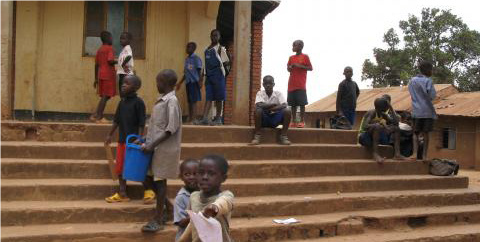“Jesus took Peter, James, and John and led them up a high mountain apart by themselves. And he was transfigured before them..." Mark 9: 2-3
In the readings for the second Sunday of Lent, we hear the challenging story of Abraham’s near sacrifice of Isaac, followed by the story of Jesus’ transfiguration before three disciples from Mark’s Gospel.
In one reading, Abraham is willing to give up his precious son, Isaac, to follow the will of God. In the other, Jesus, knowing his death is drawing near, brings his disciples up a mountain where they are given a glimpse of his heavenly glory.
These stories help us recall a most essential and difficult piece of Christian logic: that when we offer everything to God – all that we treasure, our whole selves – what we offer can be transfigured or resurrected, made more lasting and perfect than it was before.
On an individual level, Lent is a time of learning to “die” to the habits and patterns that keep us from God so that we can rise with Christ at Easter, renewed and strengthened.
On a societal level, Pope Francis is calling us as a human family to “die” to patterns that reinforce a culture of death and indifference so that our world can be transfigured by love and solidarity.
In Fratelli Tutti, and throughout many of his recent papal writings, Pope Francis invites us to think beyond the broken economic and social paradigms that have led us to our modern crises – the pandemic, the environmental crises, economies of exclusion and consumerism, the refugee crisis, etc. He invites us to step back from our entrenched ways of thinking in order to imagine creative new ways of being in relationship with one another and the earth that reflect who we are as children of God.
In Fratelli Tutti, Francis writes, “Once this health crisis passes, our worst response would be to plunge even more deeply into feverish consumerism and new forms of egotistic self-preservation… If only we might rediscover once for all that we need one another, and that in this way our human family can experience a rebirth...
Unless we recover the shared passion to create a community of belonging and solidarity worthy of our time, our energy and our resources, the global illusion that misled us will collapse and leave many in the grip of anguish and emptiness (35).”
Fear often prevents us from taking the risk necessary to allow room for creativity and new ways of thinking. So does the feeling of helplessness, of despair. But today’s readings remind us of God’s desire to transform and transfigure us and all that we offer him.
“All of creation is waiting to see what we humans choose to do. Will we rush back to ‘normal’ patterns of consumerism, convenience, comfort, and indifference to anyone or anything but ourselves, or will we embark on a new path to restore the earth to right relationships, with God, with each other and with all of creation?…[This] should be an opportunity and a time of hope, because we can transform this reality. We don’t have to return to the normal we left behind; we can choose a more fertile ground in which to plant the seeds for the harvest that God wills. -Maryknoll Lay Missioner Peg Vamosy
Questions for Reflection
- In the hardship of this pandemic, have you experienced any growth or insights?
- Who do you hope to be during this pandemic and afterward?
Living Lent
Pray
When this is over, may we never again take for granted
A handshake with a stranger
Full shelves at the store
Conversations with neighbors
A crowded theatre
Friday night out
The taste of communion
A routine checkup
The school rush each morning
Coffee with a friend
The stadium roaring
Each deep breath
A boring Tuesday
Life itself.
When this ends, may we find that we have become more like the people we wanted to be, we were called to be, we hoped to be, and may we stay that way–better for each other because of the worst.
- Laura Kelly Fanucci
Fast
Fast from one habit of convenience this week, whether it is driving when you could walk, getting takeout instead of eating the food in your home, using plastic bags instead of reusable ones, or texting when someone would appreciate a call.
Act
Explore the Pope’s COVID-19 Commission at the Vatican, which studies the ways the world can progress in justice and sustainability after the pandemic.
Based on the four priority topics of the commission (security, economics, ecology, health), find a person or organization to give your time, treasure, or talent to serve in some way this week.
Maryknoll Missioner Experience

Wealth can shield us from memory of our reliance on God and one another. This is what seemed to have happened not just to the Israelites but also to many in the United States. We have forgotten that, rich though we may be, we are part of a global community, vulnerable to being struck down by the simplest form of life – a virus, just like anyone else.
The coronavirus pandemic has highlighted many of the crevices, gaps, and breaches in our global community. It has also shown us the limitations of our ecclesial institutions and ministerial practices. When, in a time of deep crisis, we were unable to find ways of concretely sharing the “living bread” with those in need of spiritual sustenance, something is deeply amiss. Our churches are locked. Maybe what is happening in these times is Jesus knocking at the door from the inside asking to be let out.
– Fr. David Schwinghamer, MM, Uganda*
*Thank you to the Maryknoll Office for Global Concerns for permission to share this Lenten Guide at springfieldop.org.
Second Week of Lent: Photo of children playing on church steps by SuSanA Secretariat, available on Flickr: http://bit.ly/3r28OWV


